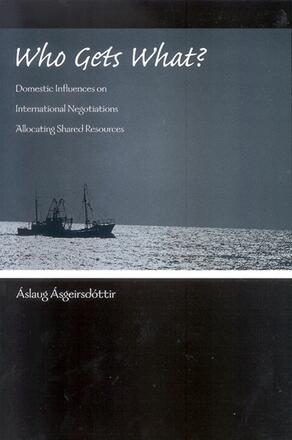
Who Gets What?
Domestic Influences on International Negotiations Allocating Shared Resources
Alternative formats available from:
Examines the domestic constraints negotiators operate under when nations seek to cooperate.
Description
During international bargaining, who gets the better deal, and why, is one of the questions at the heart of the study of international cooperation. In Who Gets What? Áslaug Ásgeirsdóttir analyzes seven agreements signed throughout a twenty-year span between Iceland and Norway to allocate shared fish stocks. While the Law of the Sea regime provides specific solution concepts for negotiators, it does not dictate the final outcome. Looking at the actual negotiation process and the political and economic constraints negotiators operate under, Ásgeirsdóttir examines how domestic interest groups can directly influence the negotiating process, and thus affect international agreements over scarce resources. Who Gets What? demonstrates empirically that a nation with more domestic constraints on its negotiators gets a better deal.
Áslaug Ásgeirsdóttir is Associate Professor of Political Science at Bates College.
Reviews
"The author's argument, in which domestic constraints provided by nongovernmental veto players help states gain their preferred outcome, is an elegant explanation that will be useful in examining a wide range of international negotiations. " — Elizabeth R. DeSombre, author of Global Environmental Institutions